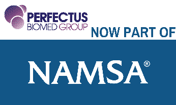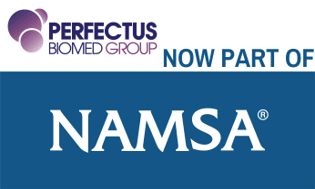REGULATORY SUPPORT
FDA 510(K), MHRA, EU MDR & MDR PMS
Perfectus Biomed generates data for global regulatory submissions.
Our laboratory offers in vitro, pre-clinical testing to generate data for global regulatory submissions, including but not limited to: Medical Device Regulation (MDR), FDA 510(k) submissions, New Drug Applications (NDAs), Pre IND/IND applications and Biocidal Products Regulation (BPR).
Regulatory Navigation
Our team have supported numerous clients through global regulatory submissions and applications. We generate reproducible and robust data for submission reports and provide clarity on submission requirements. If you need a partner to help you navigate the complications of regulation, look no further than our team at Perfectus Biomed Group.
EU Medical Device Regulation (MDR)
In May 2017, the EU Medical Device Regulation (MDR 2017/745) entered into force. The EU MDR applies to all manufacturers selling medical devices within Europe and requires that all technical documentation and processes be updated, as of May 2021. The regulation requires inspection of technical documentation, clinical evaluation and traceability of devices through the supply chain. The new MDR includes a new risk classification system for in vitro diagnostic medical devices in line with international guidance.
Updates to the MDR include:
- A new risk classification system for in vitro diagnostic medical devices in line with international guidance
- Increased transparency and traceability using a comprehensive EU database on medical devices
- Intensified post-market surveillance requirements for manufacturers
- Improved coordination of vigilance and market surveillance between EU countries
Certificates issued under the MDD, before the MDR fully applies, will be valid for up to 4 years and become void as of 26 May 2024. For further information on the new regulations, please visit the European Commission website.
FDA – 510(k) Submissions
The U.S. Food and Drug Administration require 510(k) premarket submissions for new devices that are not subject to Pre Market Approval (PMA). The submission demonstrates that a device to be marketed is at least as safe and effective as a legally marketed device. A 510(k) submission is required when:
- Commercial distribution of a new device is occurring for the first time.
- There is a change/modification to an existing legally marketed device that may affect its safety or effectiveness.
Examples of test methods carried out by us include AATCC 100 and the Single Tube Method.
Investigational New Drug (IND) Application
Drug manufacturing companies are required by law to submit their drug through an approved marketing application prior to distributing the drug. However, as the drug will need to be sent to clinical investigators state-wide, companies can apply for the IND application to obtain exemption by the FDA from that legal requirement. IND applications can fall under commercial or research categories.
Pre-Investigational New Drug (Pre-IND) Consultation Program
The FDA’s Pre-IND Consultation Program aims to facilitate early communications in order to receive guidance from the FDA prior to submitting an IND application. Pre-IND advice may be obtained with regards to issues relating to data required in support of the safety and efficacy of a new drug.
New Drug Applications (NDAs)
505(b)(1): This regulatory pathway is used to obtain FDA approval of a new drug whose active ingredients have not previously been approved. This submission requires both clinical and non-clinical data to prove the product’s safety and efficacy.
505(b)(2): This regulatory pathway is used to obtain FDA approval of a new drug. With this submission, the product will contain active ingredients to a previously approved drug, and so the submission can, in part, rely on the safety and efficacy data related to a similar product.
Biocidal Products Regulation (BPR (EU) 528/2012)
Biocidal products require authorization from ECHA (European Chemicals Agency) prior to being placed onto the market, and the active ingredient within that product must be previously approved. The BPR replaces the Biocidal Products Directive (BPD) and relates to the use of biocidal products used to protect against harmful organisms. The new EU BPR introduces amendments that will affect the marketing of biocidal products, including an option for businesses to apply for a single authorization of a biocidal product across the European Union.
Further information can be found on the ECHA website.
Your Support Team
Perfectus Biomed Group is not an advisory body, we are the scientists, researchers, and technical specialists who can give you the data support you need to bring your product to market. Contact us to have a conversation with one of our technical experts regarding our methods.







